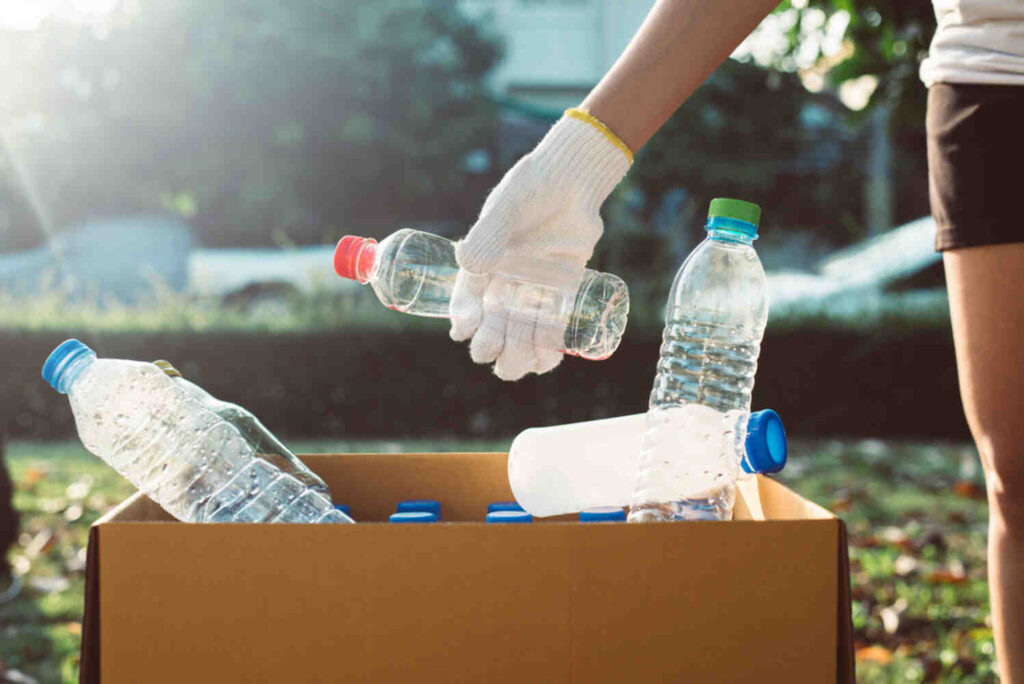5 Unspoken Realities Behind Plastic Recycling: Most Of Them Can’t Be
For some reason, we believe all plastic is recyclable when it’s the exact opposite. Most of us don’t dispose of plastic properly, but even if we do, the chances of them getting recycled are extremely thin.
The global plastic manufacturing threshold has crossed over 300 million tons per year. Out of which just 5% get recycled. The rest of them are either thrown into the water, incinerated, or buried.
Over 70% of all plastic gets used once and is destroyed. Even if we somehow figure out a way to get people to dispose of plastic properly, it is chemically impossible to recycle all of them. But why?
For that and more, make sure you read the entire article. We are about to uncover some of the ugly truths about plastic recycling that people just don’t get to know about.
1.Recycled Plastic Isn’t “Good Enough”

Different compounds react differently to heat. Some melt while the other burn. But almost all of them lose some of their properties while they get recycled. It is no secret that recycled products wouldn’t match up to the standards of a brand new variant.
With that being said, it is not profitable enough to manufacture products out of recycled plastic. Plastic is definitely not the most sought-after compound after it gets recycled. It has a really bad market reputation.
Also, recycled plastic manufactures and people who need recycled plastic have a hard time finding each other. This is because the current market for recycled plastic is extremely unorganized.
2.It’s Just Not Worth It

Let’s consider Aluminium as an example. No matter how many times we melt and remould it, aluminium never loses its quality. This is just not the case in plastics.
Every time you reheat plastic while recycling, it drops in quality subsequently. Understandably, if the quality goes down, the price goes down with it.
Recycling aluminium is actually better than making new aluminium. We can save 95% of the energy. Plastics are the exact opposite.
3.Making New Plastic Is Cheaper

In order for you to recycle plastic, it has to be of really good quality. And make no mistake, even then, recycling is still going to be an expensive process. The compound that’s getting recycled has to be good enough.
Fresh plastic is much cheaper to manufacture and distribute when compared to recycled ones. This feeble price difference makes it hard for recycled plastic to compete against the new ones.
Most of us don’t pay attention while disposing of plastics. Some of our trash could get into the recycle mix and spoil the quality of an entire batch.
4. It Is Much More Profitable To Burn Plastic

Apart from recycling, used plastic has a lot of other uses. Just like any other fossil fuel, we can burn plastic to generate heat. This heat can further be used to product electricity.
Not that we know plastic recycling is an expensive process, it is much more profitable to burn plastic to generate electricity. This applies especially to the countries who have an acute shortage of fossil fuels.
5.Recyclable Plastics Aren’t Disposed Enough

Most cheap plastics cannot be recycled back. They can only be repurposed to make ropes, electrical insulation etc., Thermoplastics are the only group of plastics that can be melted, recycled and moulded back to make new plastic objects.
But thermoplastics are durable in nature and most of them are expensive. Due to this, people don’t dispose them as often and use them for years at a stretch.
Although commercially available in plenty, they are not disposed enough in considerable amounts to get recycled and to make a significant environmental change.
Conclusion
Recycled plastic has an extremely limited life. And unlike metal recycling, this process spews out a lot of harmful toxins into the atmosphere. We as a society can work together to reduce the usage of plastics one step at a time.
This way, we won’t have to recycle huge amounts of plastic in the first place. Thankfully, eco-friendly packaging has grown to become a $96 billion dollar industry.
This is indeed a step ahead in the right direction. Just by disposing plastics properly without residues and in the bins that are marked for plastics, we can do a huge favour to the ecosystem.




